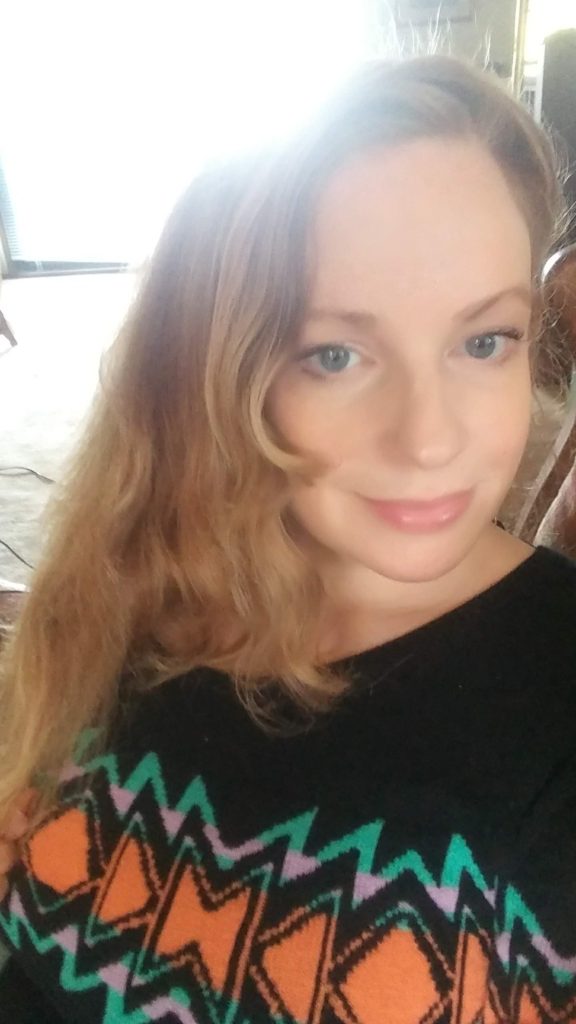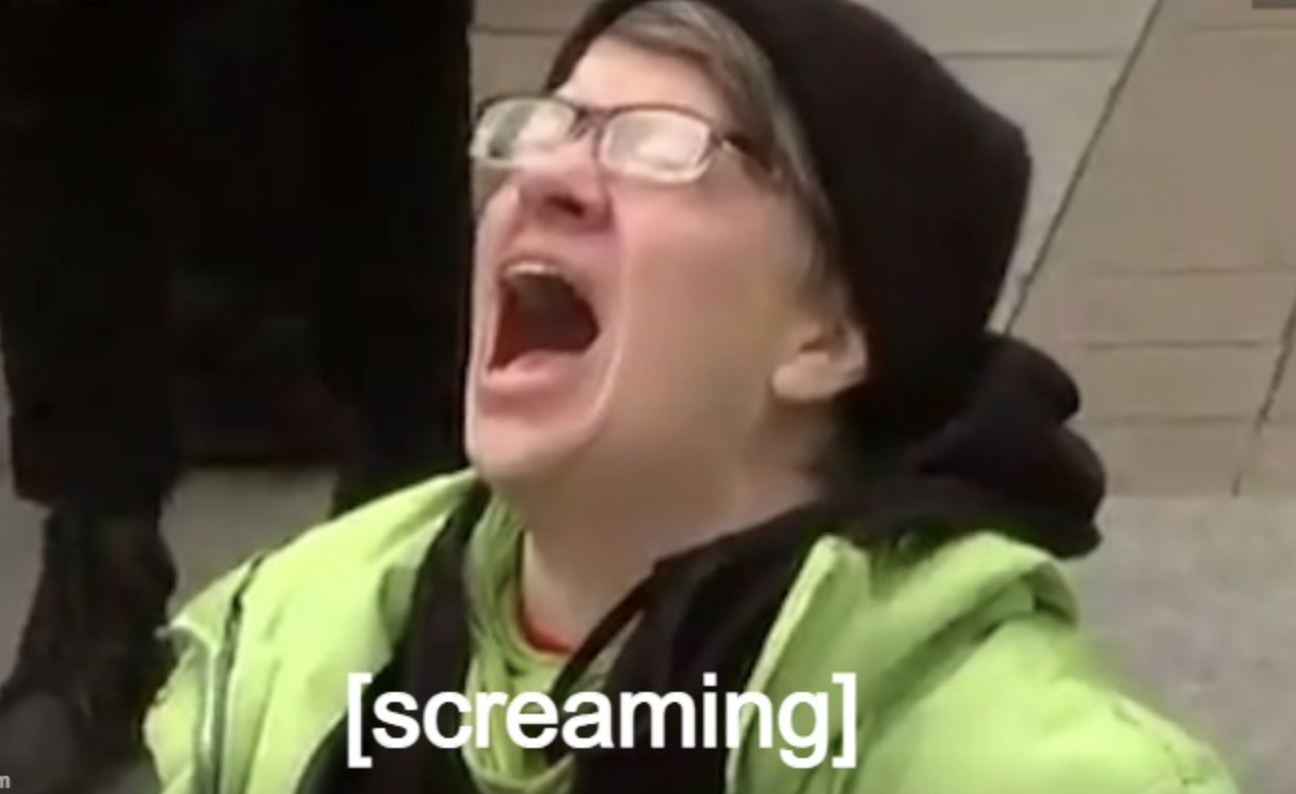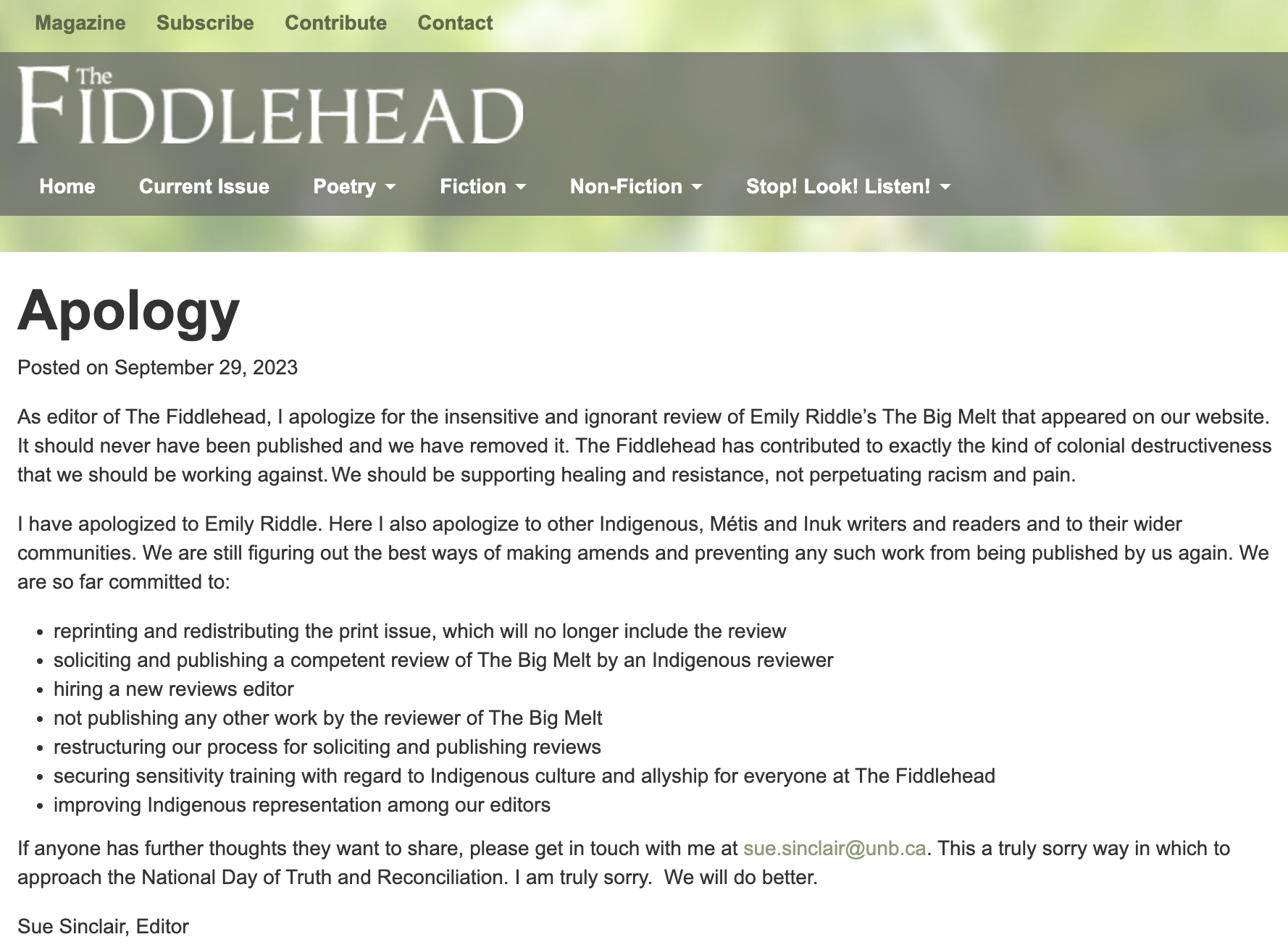Here’s the serious, professional bio from an interview on Event‘s website:
 Vancouver-based Jennifer Zilm received a B.A. and an M.A. in Religious Studies from the University of British Columbia and was a doctoral fellow at McMaster University, where her (unfinished) dissertation focused on the liturgical and poetic texts in the Dead Sea Scrolls. A graduate of Simon Fraser University’s Writer’s Studio and the Humber College School for Writers, Zilm’s writing has been published in numerous journals, including EVENT, PRISM International, Prairie Fire, Grain, CV2, The Antigonish Review, Vallum, Women in Judaism, and Poetry. Zilm is the author of two chapbooks: The whole and broken yellows (2013) and October Notebook (2015). Zilm has been a finalist for many contests, including The Malahat Review’s Far Horizons Award and CV2’s 2-Day Poem Contest. A draft of Waiting Room, her debut book of poetry (BookThug, 2016), was shortlisted for the 2014 Robert Kroetsch Award for Innovative Poetry. Learn more at www.jenniferzilm.com.
Vancouver-based Jennifer Zilm received a B.A. and an M.A. in Religious Studies from the University of British Columbia and was a doctoral fellow at McMaster University, where her (unfinished) dissertation focused on the liturgical and poetic texts in the Dead Sea Scrolls. A graduate of Simon Fraser University’s Writer’s Studio and the Humber College School for Writers, Zilm’s writing has been published in numerous journals, including EVENT, PRISM International, Prairie Fire, Grain, CV2, The Antigonish Review, Vallum, Women in Judaism, and Poetry. Zilm is the author of two chapbooks: The whole and broken yellows (2013) and October Notebook (2015). Zilm has been a finalist for many contests, including The Malahat Review’s Far Horizons Award and CV2’s 2-Day Poem Contest. A draft of Waiting Room, her debut book of poetry (BookThug, 2016), was shortlisted for the 2014 Robert Kroetsch Award for Innovative Poetry. Learn more at www.jenniferzilm.com.
Here’s the whimsical, humorous bio from the “About” page on your website.
* I have a collection of Bibles.
* My book Waiting Room was shortlisted for the Robert Kroetsch Award for Innovative Poetry, and was published by BookThug.
* A second collection The Missing Field was just released by Guernica Editions
* My chapbook The whole and broken yellows was produced in 2013 by Frog Hollow Press.
* Another, smaller chapbook, October Notebook: of night I made a commonplace is available from dancing girl press.
* I come from a long line of charismatic hillbillies, snake handlers and autodidact librarians.
* Contact me for ALL YOUR BIBLIOMANCY NEEDS including but not limited to readings, talks, workshops, archival advising, biblical interpretation, if you offer or would like to receive psychic services, tarot readings, collage sessions or thrift store shopping. I live in the Greater Surrey Area (East Vancouver).
Since I don’t know you, I have no way of deciphering the fiction/fact content of the last two points. All of it sounds very tempting, especially having a personal thrift store shopper. Just like great fiction, I want it all to be true, but I doubt there’s much money to be made from biblical interpretation. Tarot reading? Who knows? It is Vancouver, after all. Would you care to fill out some of the details mentioned in the last two points?
Well I would love for someone to contact me for any of those tasks!
I have something of an idiosyncratic education. I did graduate work in biblical studies and archives and filter this formal education through my time spent in thrift stores, SROs, public housing, libraries and public transit (I don’t have a driver’s license so I’m really good at taking the bus).
I’m also open to working with any sort of divinatory cards: I personally like paint swatches from hardware stores. I also enjoy sets of language flash cards (I have a German, Biblical Hebrew and Biblical Greek sets). I would love to get down on the floor with someone and make a collage. I also have begun to participate in the current astrology craze after using an app and discovering that I have an earth sign moon (all my life I thought I disliked Capricorns but really I just hated something in myself… isn’t that always the way?). The data was from NASA and they would never lie, right? So I’m adding chart readings to my repertoire. All my services are by donation. Barter. Trade.
I laughed when I read, “Greater Surrey Area (East Vancouver).” I kinda sorta maybe think I get what you’re referring to, but I’m not entirely sure. Can you explain it to me and others not from this area?
Surrey is the vast sprawl of “city” south of the Fraser River in Metro Vancouver.
Growing up there (especially as a girl) you learn you’re the punchline to a lot of jokes (or since the person who sets up a joke is the straight man, the punch girl). Most of these jokes involve the archetypal “Surrey Girl”. For example: What is the difference between a Surrey Girl and her mother? What does a Surrey Girl do when she wakes up? All the punchlines involve the Surrey girl’s lack of class and/or her sexual promiscuity. Surrey used to be called a “bedroom community” to Vancouver and perhaps this is why. If you look up Surrey Girl in the Urban Dictionary you are instructed to SEE ALSO: Jersey Girl, Essex Girl. So the low class slut is an archetype and imbued with special metaphorical power. Also the scapegoat holds society together, like Rene Girard says, so being the scapegoat of jokes is a very important role to play in society.
How many Surrey Girls does it take to hold together the cosmos? (This is a current genre of Surrey girl jokes I’m working on— they lack punchlines, and– like koans– are designed to clear your mind of conscious thought.)
A few more notes on Surrey:
For a time we (talking about where one spent one’s teen years causes one to break out in a horrible case of WE) had the highest car theft rate in the world.
The population of Surrey is set to pass the population of Vancouver soon.
I feel Surrey is often excised in discussions of Greater Vancouver. Douglas Coupland’s book City of Glass has a section devoted to Victoria and to Seattle but doesn’t mention Surrey once.
I read dozens of journals every year to find new guests, and I’ve noticed certain trends in bios. There’s very little humour in bios these days, compared to years past. Have writers become deadly serious about being taken seriously? To make a joke is to risk being seen as someone who isn’t serious? Some list every single publishing credit. Others cite a few specific credits and refer vaguely to “many others.” A few choose to list only a couple of their biggest, most impressive credits. Also, the competition for space seems formidable. I can’t remember the last time I encountered a first timer in the bio section. What guides you when you write a bio? Should it be a trailer for your personality? Should it reflect on the published work? Should it be a mini resume?
It is generally bizarre to write about yourself in the third person. I remember when I started writing bios like the ones you mention above—these are mortifying to hear read aloud (for instance when I do a reading). So I vacillate between short resumes but I like better to just include something else. Like “Jennifer’s favourite words are softest, turning, threshold, girl, room & fragment.” These are more fun in readings. A brief bio with your name and a fun fact might lead to an internet search which might lead to someone finding my contact info, which could lead to an impromptu collaging, thrift shopping, bible reading session!
Although structured as a poem, “Desert Postcard,” in Fiddlehead No. 274, reads and feels a bit more like a short short. To borrow from the rich vocabulary of gender politics, are you genre fluid? Are you starting to move into other forms besides poetry?
I guess I am. The book I’m working on now is called First Time Listener and will be published by Guernica Editions in 2022. It certainly has a lot more prose poems and poetic proses than The Missing Field does. However, I find it interesting that the Fiddlehead poem leads to this question. This is a sestina (using those six favourite words listed above) so it’s formally very much a poem. I have found that it is the most enjoyable poem to read out loud. The repetition creates a flow for me. Writing a sestina was a requirement in the first creative writing class I took in college. I found it draining and then in 2014, when in the midst of a big writing high I chose the words I loved rather than the subject and the poem just sort of “wrote itself.”
Is there more opportunity now for poets than there was ten years ago?
I don’t know. I mean I think it’s still hard to get published in journals and getting a book published by a literary press seems to require serendipity and networking etc. But there’s a whole instapoetry world I don’t really know about or how to navigate (and I’m not sure if this is the sort of opportunities you mean). Perhaps people are using new platforms to create opportunities. I still submit to the same journals I did ten years ago.
Vancouver does a poor job of hiding its inequality. Ambulance and fire crews scramble around the DTES responding to a steady stream of Fentanyl overdose calls, while an off-putting number of Lambos and Ferraris sporting the new driver “N” sticker can be found in UBC student parking. The DTES is a monument to inadequate mental health and addiction care in this province. Considering you’ve worked the front desk at an SRO, I’m sure I’m not telling you anything you haven’t heard before. What things do people consistently get wrong about Vancouver and the DTES specifically?
I used to get upset when I was living outside of Vancouver and people would talk about it as though it was this temperate little jewel of a city. I would then launch into a description of Robert Pickton and his crimes. Vancouver is the city of forgetting, or so it seems to me. At some point before Robert Pickton was captured the crime show America’s Most Wanted came and filmed an episode here. The host of the program was interviewed and said “I think there may a serial killer in Vancouver.” The local news said something like “typical American sensationalism!” These same newcasters would always refer to the missing by saying “the women– all of them drug addicts and prostitutes.” I also remember understanding the Olympics would be devastating for the city. And it seemed as though there was big cash infusion into DTES programs around 2010 during the Olympics and this money just dried up. Vancouver has an armed transit police force (the only one in the country). Anyways it’s very bewildering to me. I’ve touched on this in my first book, particularly in the poem “Riff on Canto Six” . Also in a poem in The Missing Field called “Single Room Occupancy”: “Did you read the latest city plan?/ It calls for dispersal, page 242 says:// Affordable housing is defined as housing/ someone can afford, and, anyways I’d rather be homeless that have to listen to that hovering voice// you know how politicians talk.” As my spiritual advisor says to me “Vancouver is going to be the greenest city in the world… pretty soon it will be so green only the trees will be able to afford to live here!” This friend worked in social housing while he lived in run down rv parked illegally near Strathcona park. I don’t know if that answers the question.
My frustration revolves around these basic problems in the DTES that may never be fixed. I drive through it every day on the way to work and nothing ever changes. I touch on some of this in my story, “Tickles the Clown,” published in Grain Magazine, 43:3. I don’t feel as much compassion, sympathy, or understanding as I should. Given the tiny percentage of people who can be “rescued” from this situation, or those who can haul themselves out of it, I mostly feel despair. If I grant you unlimited money and power, can you fix the DTES? How?
Well with unlimited power I can get rid of money and change everyone’s thoughts so we’re all kind and take care of each other.
Who has been most helpful in your development as a writer? How were they helpful?
My mentor Jen Currin told me to “get messy.” She is a truly gifted teacher.
Based on your experience with readings, what advice do you have for novice readers? Describe the good, bad, and ugly aspects of your average reading.
Betsy Warland– a person and writer I really respect– really stresses timing and planning your reading. I don’t ever do this but I think it’s really helpful for people. If you’re nervous, take a beta blocker. Accept that people are pretty forgiving if you mess up. Don’t go over time.




There are so many great things in this interview. It feels like the interesting bio instead of the long boring one.
1. I like seeing “low class slut,” “archetype,” and “imbued” (that last one a word that doesn’t get used enough) in the same sentence.
2. I feel I got to know about the writer and the person much more than if this had been a “so how did you get started?” interview.
3. The portrayal of Vancouver, a city which I know only a little bit even though I have walked along the DTES, is sort of like the interview: it gives me more of an idea of the city than any profile would that starts by talking about mountains and the ocean.
4. The comment about “the women–all of them drug addicts and prostitutes” is, as they say, sad but true. There’s a certain audience for whom the fact that the dead are “just” addicts and prostitutes is a kind of relief. “OK, it wasn’t a CEO or someone with tenure, right? Phew.”
5. Having both done and presided over a few readings in my life, the advice given at the end is excellent. If I were to choose only _one_ of them it would be: don’t go over time — because either you are stealing time from others or boring the audience.
Excellent!
Yes to all of the above. She seems candid, honest, and unafraid.